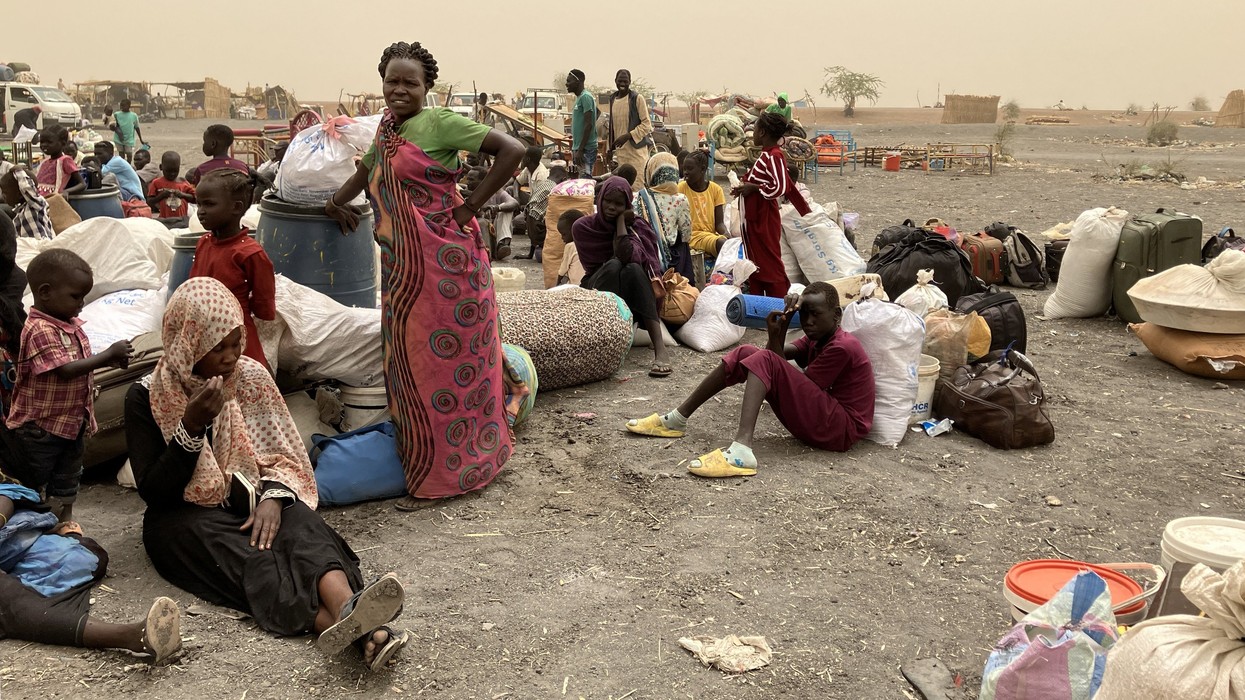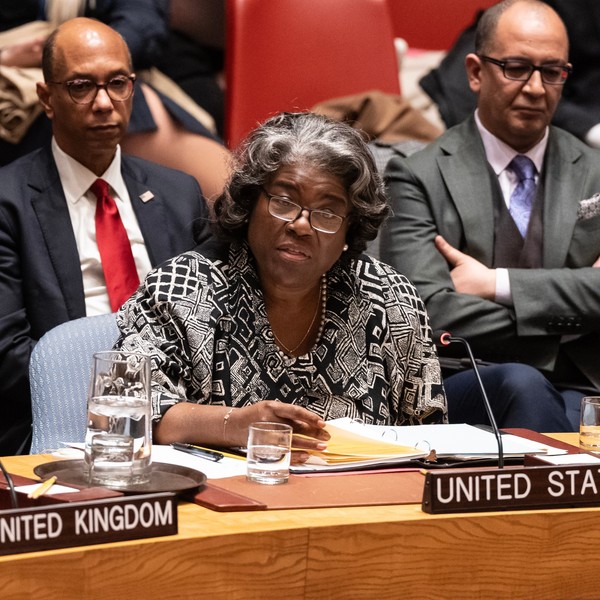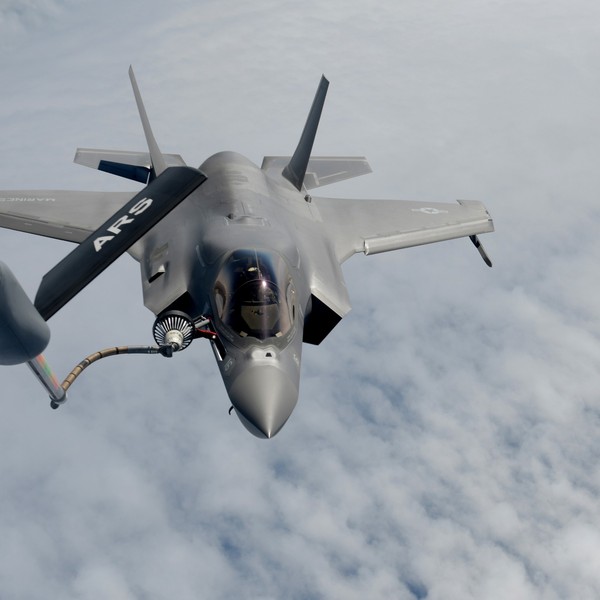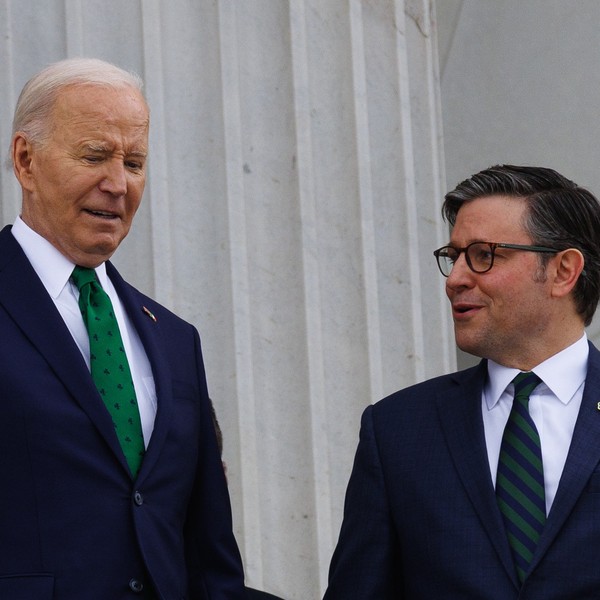Three big factors are in motion that will shape prospects for the war in Ukraine. Each of these affects the others in potentially reinforcing ways. Together, they could soon create a dynamic that might greatly constrain the ability of the Biden administration to steer events toward its desired outcomes.
The first is the course of battlefield developments. Bolstered by the mobilization Putin ordered last fall, Russian forces are pressing closer toward encircling Bakhmut, and Ukrainians look to be on the brink of their first significant setback since last summer. Although this battle has proved slow and costly for Russia, it is exacting an enormous toll on Ukraine.
The Washington Post reports that Ukrainian defenses are suffering from serious shortfalls of ammunition and experienced troops – two things that the West is in a poor position to remedy anytime soon. Sending U.S. or NATO troops would risk a direct clash with the Russian military and potential escalation into nuclear conflict. Western stockpiles of artillery shells and missiles for the war are dwindling, which in turn has implications for American military readiness elsewhere in the world. And it is becoming evident that the United States and its allies cannot ramp up defense manufacturing quickly enough to meet Ukraine’s urgent needs.
Whether Russia’s capture of Bakhmut will prove pivotal to its ability to conquer more Ukrainian territory is debatable. But wars are not always won by seizing points on a map; exhausting an opponent’s ability to field and supply fighting forces can be equally effective. In a war of attrition, Russia has a much larger base of manpower and military industry to draw upon than does Ukraine. Even if it succeeds in holding off Russia’s assault on Bakhmut, Ukrainian president Zelensky’s gamble on throwing his limited resources into an all-out defense of that city could cripple Ukraine’s ability to mount an effective counteroffensive elsewhere and achieve its avowed goal of reclaiming all Russian-occupied territory, including Crimea.
The second moving piece is at least equally important: U.S. domestic politics. For months, American popular opinion on the war has been growing more polarized, with Republicans increasingly questioning U.S. war aims and the extent of American support for Ukraine. A year ago, less than ten percent of Republicans thought the United States was providing “too much support” for Ukraine; today that number is close to fifty percent, according to a recent Quinnipiac poll. By contrast, some sixty-two percent of Democrats think U.S. support is “about right.”
This partisan divide will probably deepen as sobering reports from the battlefield chip away at American optimism, and as the campaign for the 2024 presidential election heats up. Both Florida governor Ron DeSantis and former president Donald Trump – who together represent the current preferences of more than three-quarters of Republican voters – have called explicitly for “peace” in Ukraine and opposed deeper American involvement, contrasting their stance to Biden’s “blank check” funding in pursuit of undefined or unobtainable objectives. Whereas Biden’s Ukraine policy enjoyed overwhelming bipartisan support over the past year, it is likely to face mounting political opposition going forward.
As debate over Ukraine intensifies inside the United States, the biggest wild card in this war – China – is starting to become active. Citing undisclosed intelligence, the United States has claimed that China is considering the provision of military aid to Russia, and it has publicly warned Beijing against it. Meanwhile, as Chinese president Xi prepares to meet Russian president Putin in Moscow this week and confer with Zelensky by phone, Biden and his senior officials have rejected China’s recently unveiled peace plan for Ukraine, claiming that Beijing’s tilt toward Russia disqualifies it as a potential mediator.
Despite U.S. concerns, it is unlikely that China will provide significant military support to Russia anytime soon. Such assistance would do major damage to Beijing’s standing with Europe, which is among China’s most critical trade partners at a time of growing economic uncertainty. Although Xi might be willing to risk these ties if he thought Russia were in danger of losing the war, there are no indications that Beijing believes such an outcome is imminent.
Still, there is a greater opportunity for China to play peacemaker than most in Washington believe. China has significant leverage over Russia, as Putin’s missteps in Ukraine have made Russia overwhelmingly dependent on Beijing both economically and geo-strategically. Having alienated the West, Putin can ill afford to stonewall his most important international partner if it insists that he move toward talks. Conversely, Ukraine is no doubt aware that China’s consideration of military support for Russia could prove decisive to the war’s outcome. Beijing’s bid to play mediator could have appeal for Kyiv if the Ukrainians perceive Washington as both unwilling to bring victory on the battlefield and unable to bring Russia around to an acceptable settlement.
What might these factors produce in combination? The Biden administration has long argued that Ukraine’s negotiating position will strengthen over time; that the decision to negotiate should be made in Kyiv, not Washington; and that Russia will not come to the negotiating table until it loses significant amounts of territory that it currently occupies. But by summer, Ukraine might well have less bargaining leverage, as its battlefield position stagnates and its confidence in enduring American support erodes. Both Ukraine and Russia could, for different reasons, find China increasingly attractive as a potential mediator, even if neither is yet prepared for significant concessions. Washington, which sees no such attractiveness, could still play spoiler to a Chinese-sponsored peace process, as it retains considerable leverage over Ukraine. But does Biden want to risk the potential domestic and international repercussions of appearing to oppose a settlement?
It is not too late for the Biden administration to find a way out of this potential trap by pressing the accelerator pedal on negotiations with Russia. For example, signaling discreetly to Moscow that we are prepared to discuss the thorny issue of Ukraine’s membership in NATO – an issue Putin regards as central to the war, but which Biden has so far refused to discuss – might help to change these dynamics and reshape Russia’s attitude toward a settlement.
But it is not too soon to say that the window of opportunity for American diplomacy is in danger of narrowing.















